The Diagnosis
In this article, I explain how PD affects me, why there is reason for optimism, and some of the things I do to “Outpace Parkinson’s.”
How PD affects me
| Things are often obvious with the benefit of hindsight, and now I can see the clear and consistent development of PD symptoms over the years. Looking back, the first tangible symptoms manifested themselves in 2019. I began to develop stiffness in my left hand which affected my typing. I put this down to repetitive strain injury and started to use voice-activated typing software while waiting for the RSI to resolve itself… Which it didn’t! The next thing I noticed was my voice getting progressively softer and more slurred - hence the title of this blog. This has been the most inconvenient symptom thus far but there have been some humorous interactions with the voice-activated typing programme, which misinterprets my intentions from time to time. There are many examples including “I will be naked this Tuesday” instead of “I won’t make it this Tuesday”, “I suggest we proceed among ourselves, groping others as and when possible” instead of “I suggest we proceed among ourselves, roping in others as and when possible”, and “paragraph island near Lands' End” instead of “see paragraph I have inserted at the end.” These inadvertent word salads highlight the importance of careful proofreading!! Another PD manifestation is the “masked” or “poker face”. From being a reasonably smiley guy, I have become the Don Quixote-like “Biologist of the Sorrowful Face.” I never thought that I would need to practice smiling on a daily basis! PD symptoms are diverse, with a highly individualised mix of slowness, tremors, stiffness, and other symptoms. As you can see from the radar chart (Symptoms by Domain), I score high in certain metrics and low in others. | Can’t Read my Poker Face |
The Prognosis - PD can be progressive
Some of the things I do to “Outpace Parkinson’s”
| | I’ve stolen the phrase “Outpacing Parkinson’s” from Sanjay Raghav an Indian medical doctor and Ayurvedic and yoga practitioner, based in Australia (see his YouTube channel: Outpace Parkinson's for more details). It is a vivid metaphor that conjures up an image of keeping one step ahead of the enemy, who I visualise as an Egyptian mummy from the old horror movies. The great thing is that the mummy moves slowly, so you have some time to put together your constantly evolving strategy to outpace him. I have adopted the “Kitchen Sink” approach to challenge the condition in every way within my control– Thinking about the possible causes (environmental and behavioural factors) that I can change, and diet and lifestyle practices to add and to take away. The approach is ever evolving, depending on what I learn, my physiological status, and what works for me. I have adopted an incremental approach, gradually adopting practices and observing their effects as far as possible. I have summarised some of the components of my “Kitchen Sink” below |
Medications
Exercise
One of my most important exercises is ongoing speech therapy, initially provided by an excellent speech and language therapist who has been trained in the clinically proven SPEAK OUT! Technique as provided by the Parkinson Voice Project (PVP). The technique demands daily practice, which is facilitated by PVP’s daily YouTube speech exercise videos.
Diet and supplementsIn terms of diet, I have been a near whole food vegan for many years and I am pretty convinced a mostly vegan diet is good for Parkinson’s – see Mic the Vegan’s video: 5 Ways a Vegan Diet Can Help Parkinson's Disease. I have kept off the dairy as it has been associated with faster PD progression but have reinstituted eggs into my diet (2-3 eggs per week), and the occasional bit of fish. I did a test for omega-3 levels and my omega-3 index was on the low side. In recent months I have been supplementing with red krill oil. It seems to help with my recovery from physical exertion. In April last year did the ZOE protocol to test my blood sugar and blood fat responses to food and found that I processed fat pretty well, but my blood sugar spiked quite a bit in response to simple carbs. Since this time, I’ve tweaked my diet to include more fat and fewer simple carbs. |
Managing toxic load
Consumption of canned fruits and vegetables has been associated with faster PD progression. Bisphenol A (BPA), a known endocrine disruptor, is widely used in the inner coating of food cans, while aluminum is an established neurotoxin. Toxic metal tests revealed that I had high levels of aluminium in my system. I have also been exposed to large quantities of pesticides, notably when working in the Philippines to help farmers step off the pesticide treadmill. There is nothing I can do to change these past exposures, but I can minimise toxic load going forward.
Other avenues I’m exploring, to manage toxins of all kinds, include mind-body healing, increased social support, speech therapy and breath support.
Parkinson’s as a [heavily] disguised gift
| “Life happens for you, not to you” is an oft repeated phrase in self-help circles, written in fancy fonts on living room walls, and found on tattooed body parts and crockery items… So it must be true! In my more sanguine moments, I believe it too. Parkinson’s has opened the door to a wonderful community in which relative strangers are happy to discuss their brain health and bowel movements without fear of judgement. The diagnosis has helped me appreciate all the good things I have in my life, and my overall health which is very good… “Got Parkinson’s, otherwise healthy.” PD helps me to seize the day and boost my resolve to get up first thing in the morning, jump in the cold shower, do my Bollywood dancing, and be consistent in habits which can potentially ameliorate the effects of both my chronic conditions. PB helps Julie and I embark on adventures we might otherwise have delayed like our recent Iceland holiday. Parkinson’s sucks, and the downs are inevitable, but life can still be good. | Iceland: one from the Bucket List |
References
Doidge, N., 2007. The brain that changes itself: Stories of personal triumph from the frontiers of brain science. Penguin.
Doidge, N., 2015. The brain’s way of healing: stories of remarkable recoveries and discoveries. Penguin UK.
Mic the Vegan, 2018. 5 Ways a Vegan Diet Can Help Parkinson’s Disease. Available from: https://www.youtube.com/watch?v=bSxdNJk-ej0
Mischley, L. K., 2023. Parkinson’s disease "What do successful people do to slow down PD progression?”, 2021. Available from: https://www.youtube.com/watch?v=LdpfNnnAzKI.
Mischley, L. K. et al., 2023. Parkinson Symptom Severity and Use of Nutraceuticals. Nutrients, 15 (4), 802.
Mischley, L. K., Lau, R. C. and Bennett, R. D., 2017. Role of Diet and Nutritional Supplements in Parkinson’s Disease Progression. Oxidative Medicine and Cellular Longevity, 2017.
Mischley, L. K., Lau, R. C. and Weiss, N. S., 2017. Use of a self-rating scale of the nature and severity of symptoms in Parkinson’s Disease (PRO-PD): Correlation with quality of life and existing scales of disease severity. npj Parkinson’s Disease, 3 (1), 1–7.
Mischley, L. and Rountree, R., 2019. Preventing and Slowing the Progression of Parkinson’s: A Clinical Conversation with Laurie Mischley, ND, MPH, PhD, and Robert Rountree, MD. Alternative and Complementary Therapies, 25 (2), 59–67.
Müller-Nedebock, A. C. et al., 2023. Different pieces of the same puzzle: a multifaceted perspective on the complex biological basis of Parkinson’s disease. npj Parkinson’s Disease, 9 (1), 1–11.
Python, M. The Life of Brian, 1979. HandMade Films.
Sharma, P. and Mittal, P., 2024. Paraquat (herbicide) as a cause of Parkinson’s Disease. Parkinsonism & Related Disorders, 119.

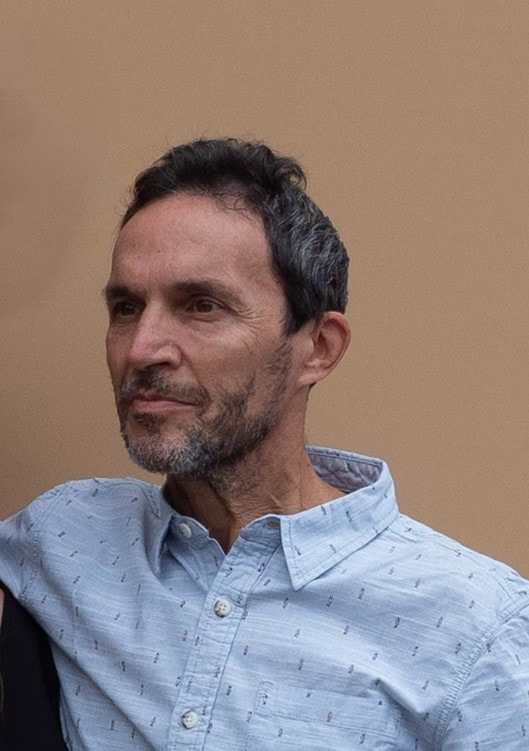
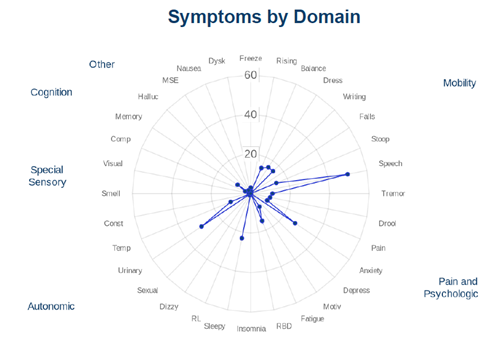

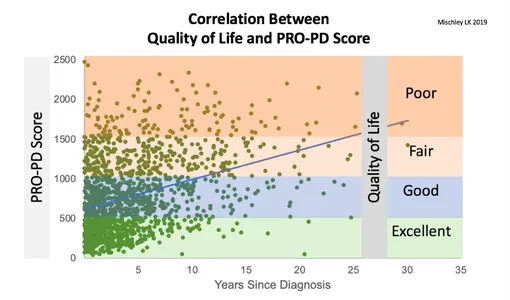
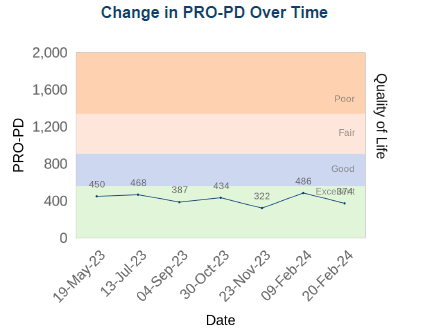
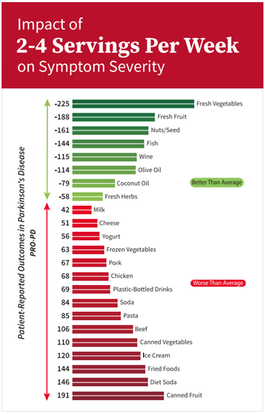

 RSS Feed
RSS Feed
